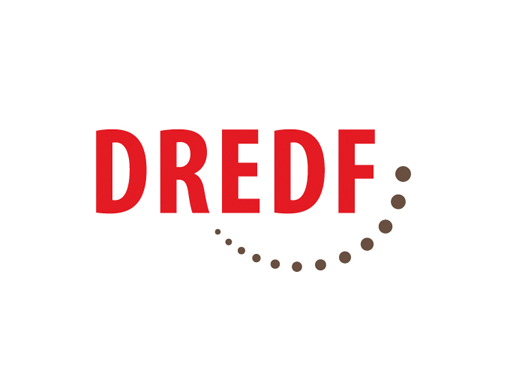What is the Disability Rights Education and Defense Fund’s (DREDF) issue focus?
DREDF is a cross-disability national law and policy center that focuses on confronting the issue of ableism. This includes systemic ableism that manifests in tandem with other issues of oppression and violence such as racism. DREDF challenges disability discrimination through legal advocacy, training, education, and public policy and legislative development. More than 40 years ago, DREDF’s founders chose its name to clearly associate and align with the tradition of other civil rights defense funds, starting with the NAACP Legal Defense and Education Fund, and we continue today to deepen these alliances. We work to enforce state and federal disability rights laws including the Individuals with Disabilities Education Act (IDEA), the Americans with Disabilities Act (ADA), and Section 504 of the Rehabilitation Act. We are committed to enforcement of the US Supreme Court’s Olmstead decision in all areas of life and its principles of community integration and full inclusion, including for people with psychiatric and intellectual/developmental disabilities, and disabled people in the criminal legal system. We are also committed to ensuring that children with disabilities receive the appropriate education, and supports and services they are entitled to in order to learn effectively, and are not subjected to restraints, seclusion, arrest, suspension, or expulsion. We work to ensure schools–at all education levels–properly educate all students and to end the school-to-prison pipeline.
What is something the Disability Rights Education and Defense Fund is currently prioritizing?
A current priority is to fight disability discrimination and to support the disability community during the COVID-19 pandemic. We are opposing disability discrimination in “crisis standards of care” – policies that guide decision-making in hospitals when there are not enough beds, supplies, or equipment to help everyone. Too many of these guides discriminate against disabled people and older adults, as well as higher weight people and people of color. We are working to ensure that health care facilities and hospitals do not discriminate and that they provide the reasonable accommodations that disabled people need to access care. For example, some people may need to be accompanied by a support person, despite “no visitor” policies, or access to devices for communication. Our campaign has had some success in changing state and federal policies because we have built and maintained close ties and alliances with our partners representing the aging and health advocacy communities. We are holding accessible webinars and creating and distributing “know your rights” materials. We are providing advice, counseling, referrals, and limited representation to people facing discrimination during the pandemic. You can find our COVID-19 Advocacy and Resources page here.
Do you have an “Advocacy Tip” to share or “Lesson Learned” while organizing this or other campaigns? Do you have any general words of wisdom that you’d like to share with other staff engaged in advocacy?
Our Advocacy Tip is for any advocacy organization seeking to work with disabled people and/or collaborate on disability issues: “Disability etiquette” starts with cross-disability access. An organization’s access – or lack of it – communicates volumes before anyone says a word. Ensuring that documents and meetings are accessible, for example, builds an organization’s capacity to effectively work with co-counsel, community partners, and staff on any effort about disability or disability rights.
Many of our member organizations work with both our Bolder Advocacy initiative on c3/c4 advocacy rules and guidance and our Justice programs on the importance of the courts and judicial nominations. How has either or both most helped you? How have you worked with either or both?
As the COVID-19 pandemic continues, the implementation of Olmstead – the right to live in the community with supports instead of in institutional settings like jails, hospitals, and nursing homes – is ever more starkly a matter of life and death. Shifting resources into the community requires strong advocates, an organized community – and judges that care about the ADA. Every judicial nomination must be considered through a disability lens.
Who inspires you?
Here’s a response from DREDF’s Legal Director, Claudia Center:
Be advised that “inspiration” is a loaded term in the disability community! But I am inspired – meaning, galvanized into collaborative action – by the vision and accomplishments of my friend Alice Wong. Alice founded the Disability Visibility Project (DVP), an online community that records, amplifies, and shares disability media and culture. DVP is a disability “hearth” with podcasts, oral histories, and Twitter chats. In this time of the pandemic, Alice is a longtime expert in virtual communication and gatherings. (See Alice attending a White House reception in 2015 by robot) Last month, Vintage Books published Disability Visibility: First Person Stories from the Twenty-First Century, edited by Alice, featuring 37 works by disabled voices, with a bibliography listing many more authors and creators. Alice is heading up an accessible virtual book tour bringing her friends and fans together during COVID-19. Lead on, Alice!
Learn more about Disability Rights Education and Defense Fund.

